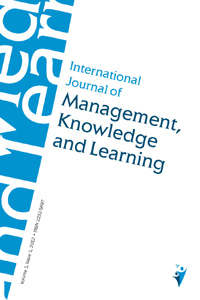Prevention of White-Collar Crime by Knowledge and Learning in Business Organizations: An Empirical Study of Chief Financial Officer Management
Prevention of White-Collar Crime by Knowledge and Learning in Business Organizations: An Empirical Study of Chief Financial Officer Management
Author(s): Hans Solli-Soether, Petter GottschalkSubject(s): Economy
Published by: Mednarodna fakulteta za družbene in poslovne študije
Keywords: white-collar crime; CFO; auditing; internal control system; knowledge; learning
Summary/Abstract: Knowledge and learning are important in combating financial crime generally and white-collar crime in particular. The purpose of this research is to generate insights into prevention approaches in practice that may reflect on a contingent approach. The five hundred largest business companies in terms of annual turnover were identified in Norway for our empirical study of whitecollar crime. A paper letter was mailed to the chief financial officer (CFO) asking him or her to fill in the questionnaire to be found on a web site using a password found in the letter. The open-ended question in the questionnaire to CFOs about prevention of white-collar crime was formulated as follows: How can white-collar crime best be prevented in your company? Survey results indicate an even distribution of respondents emphasizing control and respondents emphasizing influence. This empirical research steps back from many best practice articles and provides insights into preferences of chief financial officers on how to prevent white-collar crime in the company.
Journal: International Journal of Management, Knowledge and Learning
- Issue Year: 1/2012
- Issue No: 1
- Page Range: 45-54
- Page Count: 10
- Language: English

